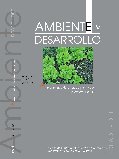Resumo
La pérdida de la oferta y calidad del recurso hídrico debido a malas prácticas demanejo y sobreexplotación, se ha convertido en una amenaza directa para la biodiversidad,la funcionalidad ecosistémica y el bienestar del ser humano. Esta investigaciónpresenta los resultados de una serie de entrevistas, talleres y caracterizacionesde sistemas productivos rurales, realizados a productores campesinos en la veredaAguapamba, localizada en el municipio de Pasto en el departamento de Nariño (Colombia),con el fin de evidenciar cómo las percepciones campesinas sobre el estadoy la importancia del recurso hídrico influyen en su uso y manejo; así mismo, explorala efectividad de instituciones emergentes para el manejo del recurso. Se concluyeque la percepción definitivamente fundamenta el uso que se haga del recurso; noobstante, los beneficios económicos a corto plazo determinan la toma de decisionessobre el uso y manejo del agua. Así mismo, la investigación evidencia institucionesrurales campesinas emergentes que buscan regular y manejar el uso del recurso, apartir de las cuales se desarrolla un análisis institucional.Ambiente y Desarrollo se encuentra registrada bajo la licencia Creative Commons Reconocimiento 4.0 Internacional. Por lo tanto, esta obra se puede reproducir, distribuir y comunicar públicamente en formato digital, siempre que se reconozca el nombre de los autores y a la Pontificia Universidad Javeriana. Se permite citar, adaptar, transformar, autoarchivar, republicar y crear a partir del material, para cualquier finalidad (incluso comercial), siempre que se reconozca adecuadamente la autoría, se proporcione un enlace a la obra original y se indique si se han realizado cambios. La Pontificia Universidad Javeriana no retiene los derechos sobre las obras publicadas y los contenidos son responsabilidad exclusiva de los autores, quienes conservan sus derechos morales, intelectuales, de privacidad y publicidad.
El aval sobre la intervención de la obra (revisión, corrección de estilo, traducción, diagramación) y su posterior divulgación se otorga mediante una licencia de uso y no a través de una cesión de derechos, lo que representa que la revista y la Pontificia Universidad Javeriana se eximen de cualquier responsabilidad que se pueda derivar de una mala práctica ética por parte de los autores. En consecuencia de la protección brindada por la licencia de uso, la revista no se encuentra en la obligación de publicar retractaciones o modificar la información ya publicada, a no ser que la errata surja del proceso de gestión editorial. La publicación de contenidos en esta revista no representa regalías para los contribuyentes.


